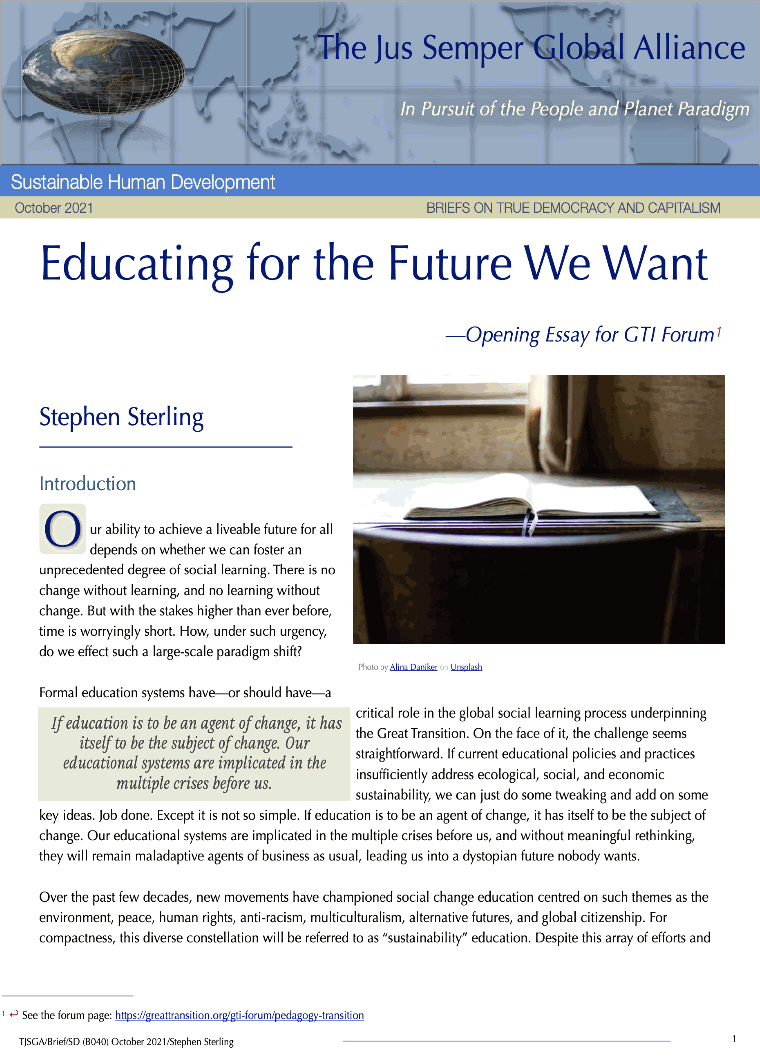an innovative institutional structure Stephen Sterling Formal education systems have—or should have—a critical role in the global social learning process underpinning the Great Transition. On the face of it, the challenge seems straightforward. If current educational policies and practices insufficiently address ecological, social, and economic sustainability, we can just do some tweaking and add on some key ideas. Job done. Except it is not so simple. If education is to be an agent of change, it has itself to be the subject of change. Our educational systems are implicated in the multiple crises before us, and without meaningful rethinking, they will remain maladaptive agents of business as usual, leading us into a dystopian future nobody wants. Over the past few decades, new movements have championed social change education centred on such themes as the environment, peace, human rights, anti-racism, multiculturalism, alternative futures, and global citizenship. For compactness, this diverse constellation will be referred to as “sustainability” education. Despite this array of efforts and the common values of social justice and ecological integrity, the fragmentation of energy and effort has limited the potential for significant progress. For a full read of this brief, click here or on the picture to download the pdf file.
|

- © The Jus Semper Global Alliance
| Home |  | Resources |  | Democracy Best Practices |  | Educating for the Future We Want |


